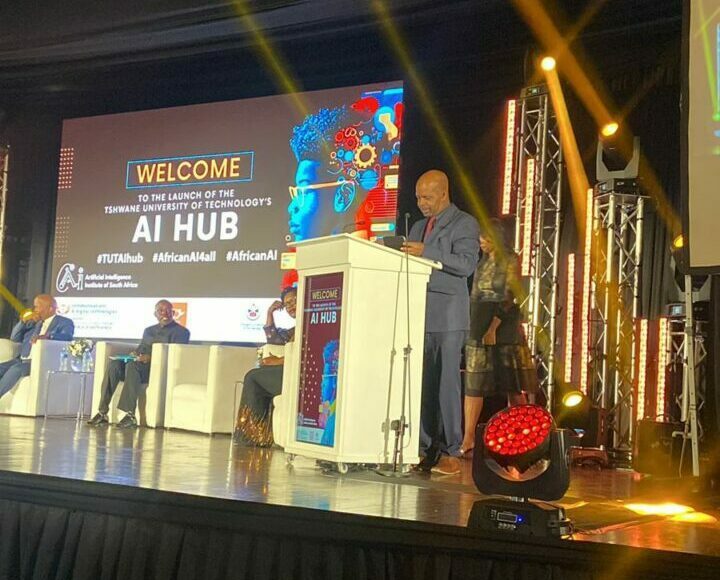Artificial Intelligence is indeed the future. The Tshwane University of Technology (TUT) joined by the University of Johannesburg launched its AI Hub on Friday, in partnership with the Department of Communications and Digital Technology (DCDT) on Friday.
The event, which was attended by the DCDT Minister Mondli Gungubele, Princess of Africa Yvonne Chaka Chaka and other esteemed guests, took place at TUT’s Pretoria Campus.
Speaking at the launch, TUT Vice-chancellor and principal Prof Tinyiko Maluleke said the time had come for South Africa to join the digital revolution that is sweeping across the nations of the world.
Maluleke said it was such a great pleasure and an honour to be part of the first two institutions of higher learning to host the AI Institute of South Africa
“The work of the Artificial Intelligence Institute of South Africa is to bend the arch of the digital universe in favour of South Africa. This way, South Africa will stop being a consumer and a victim of solutions and algorithms conceptualised elsewhere. Instead, South Africa will become the author and shaper of its own digital destiny,” added Prof Maluleke.
Gungubele said the catalytic projects already in place at TUT and UJ were indicative of how AI could become the engine of economic advancement in various sectors.
These projects target three sectors of the country’s economy, namely 4IR in Manufacturing (value chain), Healthcare as well as Farming/Agriculture and Food Processing (Agriculture 5.0).
“Through the formation of AIISA, South Africa is poised to become a significant player in the global Fourth Industrial Revolution. We are looking forward to this important launch of the TUT AI Hub.”
Gungubele added that digitization was an initiative to improve human capacity and to ensure that our hopes are fulfilled.
UJ vice-chancellor Prof Letlhokwa Mpedi said, as universities, they had a responsibility that whatever they did and implemented positively impacted their communities.
“The pandemic confirmed that 4IR, which was still subject to speculation, is indeed here. It is a shift we are unable to ignore. Transforming the lives of our people is possible with the partnership of government, universities and the private sector,” added Prof Mpedi.
A Postgraduate student in Computer Systems at TUT, Katlego Rambau, said they had a system that was an AI model that helped them to check egg fertility.
“We then put the fertile ones in the incubator and they produce chicks, whereas the infertile ones are the ones that people buy in stores.”
Rambau added that they also used a digital application called Plant Disease, which told them if the plant was healthy or had any form of disease by just taking a picture of the plant. The app also suggests what can be done to maintain the plant.
TUT student Khoitsile Hlhatsi, who represented the AI capacity building for public servants (4IR in manufacturing), introduced the AI Digital Human to the guests.
“We have an AI human, who integrates all technologies. She is able to tell how your day is going by simply reading your mood. The digital human is there to make lives easier, by working when we are asleep.”
For more education news from Sunday World, click here.
Follow @SundayWorldZA on Twitter and @sundayworldza on Instagram, or like our Facebook Page, Sunday World, by clicking here for the latest breaking news in South Africa.




